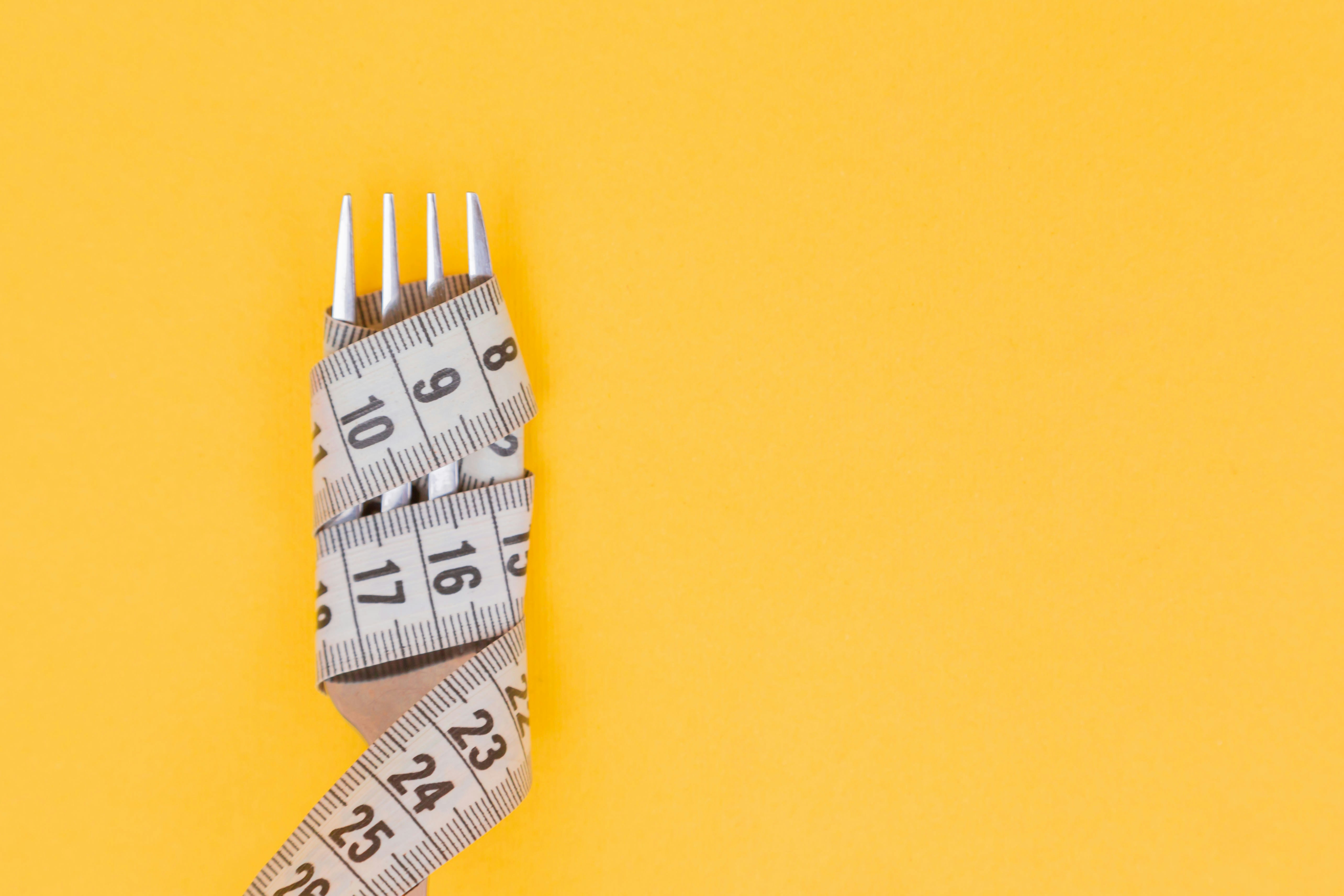Can you lose weight by focusing on specific foods in your diet? It’s a question that many of us have asked ourselves at some point. The truth is, while certain foods may play a role in weight loss, it’s important to approach your health goals in a holistic way. Instead of solely relying on specific foods, consider incorporating a balanced and nutritious diet, coupled with regular exercise.
While some foods, such as fruits, vegetables, whole grains, and lean proteins, may be more beneficial for weight loss, it’s essential to remember that no single food can magically make the pounds melt away. Achieving and maintaining a healthy weight requires a combination of factors, including portion control, calorie moderation, and a well-rounded eating plan. So, rather than focusing solely on “magic” foods, aim to create a diverse and enjoyable diet that incorporates a variety of nutritious options. Remember, sustainable weight loss is about making long-term lifestyle changes, rather than relying on quick fixes.
The Importance of a Balanced Diet
A Variety of Nutrients
Maintaining a balanced diet is crucial for your overall health and well-being. By consuming a variety of nutrients, you provide your body with the fuel it needs to function optimally. A balanced diet consists of carbohydrates, proteins, fats, vitamins, minerals, and fiber. Each of these nutrients plays a vital role in keeping your body healthy and ensuring all bodily processes are working efficiently.
Carbohydrates are the main source of energy for your body. They provide fuel for your brain, muscles, and organs. Whole grains, fruits, and vegetables are excellent sources of complex carbohydrates that not only provide energy but also contain essential vitamins and minerals. Proteins are the building blocks of your body and are vital for repairing and building tissues. Lean meats, poultry, fish, beans, and legumes are excellent sources of protein. Fats are necessary for maintaining healthy skin and hair, absorbing fat-soluble vitamins, and providing a long-lasting source of energy. Healthy fats can be found in avocados, nuts, and olive oil.
Portion Control
While consuming a variety of nutrients is important, it is equally important to practice portion control. Portion control refers to managing the amount of food you eat in one sitting. Overeating can lead to weight gain and other health issues. It is important to be mindful of your portion sizes and listen to your body’s hunger and fullness cues.
A helpful tip for portion control is to use smaller plates, bowls, and utensils. This gives the illusion of a larger portion and can help prevent overeating. Additionally, practicing mindful eating techniques, such as eating slowly and savoring each bite, can assist in recognizing feelings of fullness and satisfaction.
Sustainable Lifestyle Changes
Achieving and maintaining a balanced diet is not solely about short-term results or restrictive eating patterns. It is about embracing long-lasting lifestyle changes that are sustainable and promote overall health and well-being. Rather than resorting to fad diets or extreme measures, focusing on making gradual changes to your eating habits is key.
Start by incorporating more whole, unprocessed foods into your diet and reducing the consumption of highly processed and sugary foods. Set realistic goals for yourself, such as aiming to eat a certain number of servings of fruits and vegetables each day. Remember that small changes can lead to big results over time. Developing healthy eating habits is a lifelong journey, and making sustainable lifestyle changes is the key to success.
Foods that Promote Weight Loss
Fruits and Vegetables
Fruits and vegetables are essential components of a weight loss-friendly diet. They are low in calories and high in vitamins, minerals, and fiber. Consuming a variety of fruits and vegetables not only helps you feel full and satisfied but also provides your body with the necessary nutrients for overall health.
Leafy greens, such as spinach and kale, are particularly beneficial for weight loss due to their low calorie and high nutrient content. Incorporate colorful fruits like berries and citrus fruits into your diet for added antioxidants and fiber.
Lean Protein Sources
Protein is an important macronutrient when it comes to weight loss. It helps regulate appetite, supports muscle growth and repair, and increases your metabolic rate. Including lean protein sources in your diet can help you feel fuller for longer and prevent overeating.
Chicken breast, turkey, lean cuts of beef, fish, tofu, and legumes are excellent sources of lean protein. Incorporate these into your meals to increase satiety and support weight loss efforts.
Whole Grains
Contrary to popular belief, carbohydrates are not the enemy when it comes to weight loss. However, it is important to choose the right kind of carbohydrates. Whole grains, such as brown rice, quinoa, and whole wheat bread, are low in calories and high in fiber.
The fiber content in whole grains helps you feel full and satisfied, preventing overeating. Additionally, whole grains provide essential nutrients and have a lower glycemic index compared to refined grains, which can help stabilize blood sugar levels.
Nuts and Seeds
While high in calories, nuts and seeds are nutrient-dense and can be beneficial for weight loss when consumed in moderation. They are rich in healthy fats, fiber, and protein, all of which help promote satiety and support weight loss efforts.
Almonds, walnuts, chia seeds, and flaxseeds are excellent options to incorporate into your diet. However, it is important to be mindful of portion sizes, as they can easily contribute to excess calorie intake if consumed in large amounts.
Low-Fat Dairy Products
Low-fat dairy products, such as skim milk, yogurt, and cottage cheese, can be part of a healthy weight loss diet. They are excellent sources of calcium, protein, and other essential nutrients.
Including low-fat dairy products in your diet can help increase feelings of fullness and promote bone health. Opt for low-fat or fat-free options to reduce calorie intake while still reaping the nutritional benefits.
Foods to Limit or Avoid
Processed Foods
Processed foods, such as fast food, packaged snacks, and sugary beverages, should be limited or avoided as much as possible when trying to lose weight. These foods are often high in calories, unhealthy fats, added sugars, and sodium, which can negatively impact your weight loss efforts and overall health.
Instead, opt for whole, unprocessed foods as much as possible. Focus on fresh fruits and vegetables, lean protein sources, whole grains, and healthy fats.
Added Sugars
Added sugars are a major contributor to excess calorie intake and can hinder weight loss efforts. They provide empty calories and are often found in sugary drinks, sweets, baked goods, and processed snacks.
Read food labels carefully and be mindful of hidden sugars in products. Opt for natural sweeteners, such as honey or maple syrup, when needed, and focus on satisfying your sweet tooth with whole fruits.
Saturated and Trans Fats
Saturated and trans fats are unhealthy fats that can contribute to weight gain and increase the risk of heart disease. They are often found in processed meats, fried foods, baked goods, and commercially packaged snacks.
Limiting the consumption of these fats and opting for healthier fats, such as monounsaturated and polyunsaturated fats found in avocados, olive oil, and fatty fish, is important for weight loss and overall health.
Highly Caloric Foods
Highly caloric foods, such as desserts, fried foods, and creamy sauces, can quickly add up in terms of calorie intake. While enjoying these foods occasionally is not a problem, incorporating them regularly into your diet can impede weight loss efforts.
Be mindful of your portion sizes when indulging in these foods and aim to prioritize nutrient-dense options in your daily meals.
The Role of Caloric Deficit
Understanding Calories
At its core, weight loss is all about creating a caloric deficit. This means consuming fewer calories than your body needs to maintain its current weight. When you consistently maintain a caloric deficit, your body begins to utilize stored fat for energy, resulting in weight loss.
Calories are units of energy found in food and beverages. Each person has unique caloric needs based on factors such as age, gender, weight, height, and activity level. Understanding the role of calories in weight loss is essential for achieving your goals.
Calculating Caloric Needs
To determine your daily caloric needs, it is recommended to use a calorie calculator or consult with a registered dietitian. These professionals can help assess your individual needs and provide personalized recommendations.
Keep in mind that a moderate caloric deficit of around 500-1000 calories per day is generally recommended for sustainable weight loss. Rapid weight loss through extreme caloric restriction is not advisable, as it can lead to nutrient deficiencies and other health complications.
Creating a Caloric Deficit
Creating a caloric deficit can be achieved through a combination of controlling portion sizes and making healthier food choices. By incorporating nutrient-dense, low-calorie foods into your diet, you can feel satisfied while still maintaining a caloric deficit.
Tracking your daily food intake using a food diary or mobile app can be helpful in ensuring you stay within your caloric goals. Be mindful of portion sizes, limit high-calorie foods, and focus on consuming a well-balanced diet that meets your nutritional needs.
Meal Planning and Preparation
Formulating a Well-Balanced Meal Plan
Meal planning and preparation are key components of maintaining a balanced diet and achieving weight loss goals. By planning and preparing your meals in advance, you can ensure that you have nutritious options readily available, which reduces the likelihood of resorting to unhealthy choices.
When formulating a well-balanced meal plan, aim to include a variety of foods from each food group. Incorporate lean protein sources, whole grains, fruits, vegetables, and healthy fats into your meals. Balance your macronutrients and portion sizes to meet your caloric goals.
Healthy Cooking Methods
The way you cook your food can greatly impact its nutritional value. Opting for healthy cooking methods can ensure that you maximize the health benefits of your meals while minimizing the addition of excess calories or unhealthy fats.
Grilling, baking, steaming, and sautéing with minimal oil are all healthy cooking methods to consider. Avoid deep frying or cooking foods in excessive amounts of oil, as it can significantly increase calorie and fat content.
Mindful Eating
Mindful eating is the practice of fully engaging with your food, paying attention to the flavors, textures, and sensations of each bite. It promotes a healthier relationship with food and can help prevent mindless eating, which often leads to overconsumption.
When practicing mindful eating, take the time to sit down and savor your meals. Chew slowly and pay attention to your body’s hunger and fullness cues. Avoid distractions such as television or electronic devices, as they can often lead to mindless eating.
Potential Risks and Challenges
Nutrient Deficiencies
When embarking on a weight loss journey, it is important to be mindful of potential nutrient deficiencies that may arise. Restrictive eating patterns or eliminating food groups can lead to inadequate intake of certain vitamins and minerals.
To prevent nutrient deficiencies, focus on consuming a wide variety of nutrient-dense foods. If you have specific dietary restrictions or concerns, it is advisable to consult with a healthcare professional or registered dietitian to ensure you are meeting your nutritional needs.
Social Pressures and Temptations
Social situations and peer pressure can often pose challenges when it comes to maintaining a balanced diet. Attending parties or gatherings that are centered around unhealthy food choices can be particularly challenging.
To navigate these situations, it is important to plan ahead and come prepared with healthier alternatives or strategies. Communicate your goals with friends and family, and seek their support. Remember that it is okay to indulge occasionally, but also prioritize your long-term health and well-being.
Psychological and Emotional Factors
Weight loss is not solely a physical journey, but also an emotional one. Psychological factors, such as stress, emotional eating, and self-esteem, can significantly impact your ability to maintain a balanced diet and achieve weight loss goals.
It is important to address these factors and develop coping mechanisms that promote a healthy relationship with food. Seek support from friends, family, or professionals, and consider incorporating stress management techniques into your daily routine, such as exercise, meditation, or journaling.
The Need for Physical Activity
Exercise and Weight Loss
While diet plays a significant role in weight loss, incorporating regular physical activity is equally important. Exercise helps increase caloric expenditure, build lean muscle mass, and improve overall fitness levels.
Engaging in both cardio exercises and strength training can help boost metabolism, leading to increased calorie burning even at rest. Aim to incorporate at least 150 minutes of moderate-intensity aerobic activity, such as brisk walking or cycling, into your weekly routine, as well as two or more days of strength training exercises.
Combining Diet and Exercise for Best Results
When it comes to weight loss, combining a healthy diet with regular exercise is the most effective approach. While diet alone can result in weight loss, incorporating exercise can enhance your results and improve overall health.
Exercise not only supports weight loss efforts but also provides numerous health benefits, such as reducing the risk of chronic diseases, improving cardiovascular health, and enhancing mood and mental well-being. Strive for a balanced approach by nourishing your body with nutritious foods and staying physically active.
Healthy Snacking Options
Resorting to Nutritious Snacks
Snacking can often lead to mindless eating and excess calorie intake. However, when done right, snacking can be a healthy and satisfying part of your diet.
Opt for nutrient-dense snacks that provide a balance of macronutrients and can help keep your energy levels stable between meals. Some healthy snack options include Greek yogurt with berries, baby carrots with hummus, a handful of nuts, or a sliced apple with nut butter.
Avoiding Unhealthy Snacking Habits
While snacking can be part of a balanced diet, it is important to avoid unhealthy snacking habits that can hinder weight loss efforts.
Avoid reaching for sugary snacks, processed foods, and high-calorie beverages. These options can lead to energy crashes and cravings for more unhealthy foods. Instead, plan your snacks ahead of time and have them readily available. This will help prevent impulse snacking and allow you to make healthier choices.
Monitoring Progress and Seeking Support
Measuring and Tracking Weight Loss
Monitoring your progress is essential when it comes to achieving your weight loss goals. Regularly tracking your weight, body measurements, or body fat percentage can provide valuable insights and keep you motivated.
However, it is important to remember that the scale is not the sole measure of success. Focus on other indicators of progress, such as increased energy levels, improved mood, or the fit of your clothes. These non-scale victories are equally important and can help keep you motivated on your journey.
Seeking Professional Guidance
Navigating the world of weight loss can be overwhelming, especially with the abundance of misinformation available. Seeking professional guidance from a registered dietitian or healthcare professional can provide you with evidence-based strategies tailored to your individual needs.
These professionals can assess your current eating habits, provide personalized recommendations, address any nutrient deficiencies, and help you create a sustainable meal plan. They can also support you in developing a healthy relationship with food and overcoming any obstacles or challenges you may encounter.
Engaging in Supportive Communities
Embarking on a weight loss journey can feel isolating at times. Engaging with supportive communities, whether online or in-person, can provide you with a valuable support system.
Seek out groups or forums where you can connect with individuals who share similar goals and experiences. These communities can offer encouragement, accountability, and a platform to share your successes and challenges.
Conclusion
Maintaining a balanced diet is essential for weight loss and overall health. By consuming a variety of nutrients, practicing portion control, and making sustainable lifestyle changes, you can achieve your weight loss goals while nourishing your body.
Incorporating foods that promote weight loss, such as fruits and vegetables, lean protein sources, whole grains, nuts and seeds, and low-fat dairy products, can support your weight loss efforts.
It is important to limit or avoid foods that can hinder weight loss, such as processed foods, added sugars, saturated and trans fats, and highly caloric foods.
Creating a caloric deficit through understanding calories, calculating caloric needs, and making healthier food choices is key to weight loss success.
Meal planning and preparation, healthy cooking methods, and mindful eating can help you maintain a balanced diet.
Be aware of potential risks and challenges, such as nutrient deficiencies, social pressures, and psychological factors, and develop strategies to overcome them.
Combine a balanced diet with regular physical activity for optimal results and improved overall health.
Choose healthy snacking options and avoid unhealthy habits.
Monitor your progress, seek professional guidance, and engage in supportive communities to stay motivated and on track.
In conclusion, a balanced diet is not only important for weight loss but also for overall health and well-being. By making gradual, sustainable changes to your eating habits and incorporating a variety of nutrient-dense foods, you can achieve your weight loss goals while nourishing your body and promoting long-term health. Remember to be patient and kind to yourself throughout the process, and seek support when needed.



